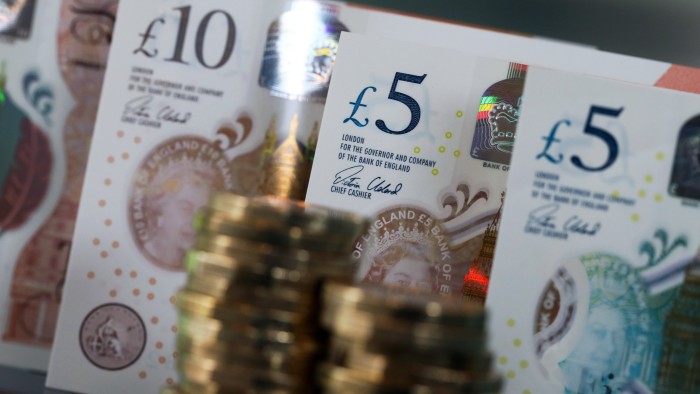Unlock the Editor’s Digest totally free
Roula Khalaf, Editor of the FT, selects her favorite tales on this weekly publication.
“Anxious” British households are prioritising saving cash over spending greater than at any level because the world monetary disaster, in response to a survey that underlines considerations in regards to the lack of a rebound in client exercise.
Some 34 per cent of customers deemed July “a great time to avoid wasting”, up from 27 per cent in June and the best studying since November 2007, earlier than the 2008-09 monetary crash, analysis firm GfK stated on Friday.
Neil Bellamy, client insights director at GfK, stated the bounce within the financial savings index steered “persons are anxious” and that these in a position to “put cash apart are constructing contingency funds”.
Between 2008 and the tip of 2020, the financial savings index averaged minus 2 per cent nevertheless it rose sharply with the price of residing disaster, as Britons grappled with rising costs, rents and mortgage prices.
Wages have been rising quicker than costs since mid-2023, serving to family funds. However actual family disposable earnings per head — the inflation-adjusted quantity of earnings obtainable for a family after taxes and subsidies — fell 1 per cent in three months to March, owing to the influence of upper taxes and value progress.
With analysts predicting that chancellor Rachel Reeves must increase taxes within the autumn Finances to fill a fiscal gap of £20bn or extra and inflation rising greater than anticipated in June, “some individuals could also be sensing stormy circumstances forward”, Bellamy added.
GfK’s separate general client confidence index — a measure of how individuals view their private funds and broader financial prospects — fell one level to minus 19.
The survey, carried out within the first half of July, is carefully monitored as a sign of how a lot customers are prepared to spend, which accounts for about 60 per cent of UK GDP.
Households’ assessments of the UK financial state of affairs over the previous yr and over the following 12 months each deteriorated by one level in July.
Official knowledge final month confirmed that the family saving ratio — the proportion of disposable earnings put away by households — fell to 10.9 per cent within the first three months of 2025.
The determine was down from 12 per cent within the three months to December 2024, however nonetheless nicely above the 5.5 per cent common within the three years to 2019, earlier than the Covid-19 pandemic and upsurge in inflation.
Traditionally increased financial savings contributed to disappointing family spending all through 2024 and the primary three months of this yr.
Households put an additional £14bn into ISAs in April, the best quantity since knowledge assortment started in 1999, in response to the Financial institution of England. An additional £3.9bn went into the tax-free financial savings merchandise in Might.
The surge in deposits got here after Reeves was anticipated to chop the annual tax-free money Isa allowance in an effort to shift among the £300bn held on this product into UK firms. However this month she shelved the plans, after a fierce backlash from constructing societies and client champions.
Philip Shaw, economist on the financial institution Investec, stated elevated hypothesis about tax rises within the autumn — following U-turns by the federal government on cuts to welfare and winter gas funds — was seemingly “the largest driver” behind weakening client confidence.
Firms have additionally been hit by lacklustre spending and rising prices, with the S&P World buying supervisor survey pointing on Thursday to weakened enterprise sentiment in July because the restoration within the dominant companies sector misplaced momentum.
Bellamy stated it was “tough to see what is going to raise client confidence meaningfully increased within the months to come back. It has drifted quietly downwards over the previous yr, and any recent challenges or shocks might simply push confidence sharply decrease.”

